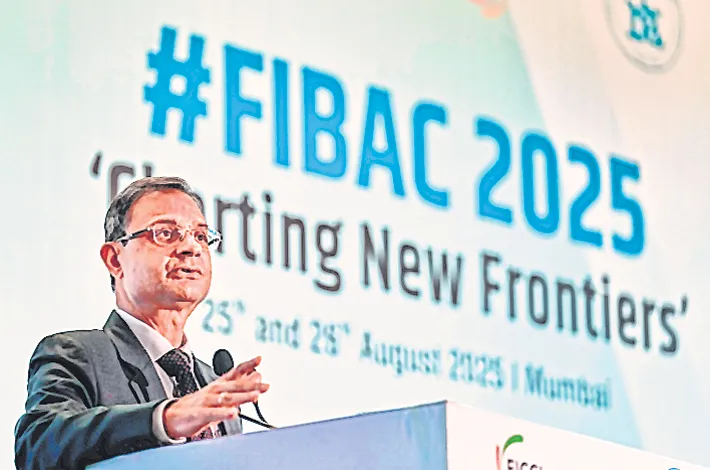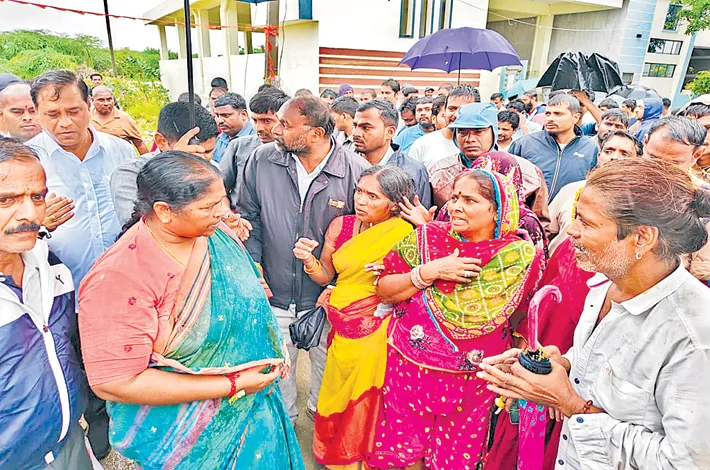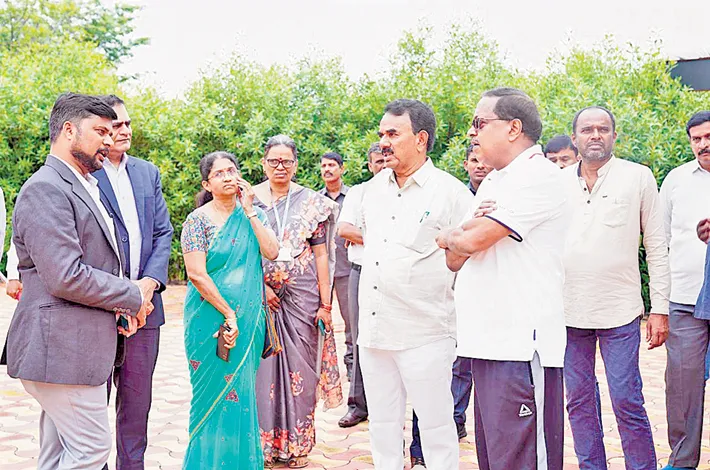‘Rediscover economy’s animal spirit’
26-08-2025 12:00:00 AM

KEY TAKEAWAYS
- RBI proposes to implement Basel III in Apr 2027
- Regulatory Review Cell in offing
- Consolidating regulations for various categories of regulated entities
- Examining measures to expand bank credit towards productive sectors
Despite increase in other sources of credit, the banks, NBFCs, HFCs and AIFIs regulated by RBI still provide about 73% of the credit needs of the real economy with banks providing about 53%
Palazhi Ashok Kumar mumbai
Reserve Bank Governor Sanjay Malhotra on Monday urged the industry to invest boldly and champion the entrepreneurial spirit that defines India.Calling for rediscovering the domestic economy’s animal spirit, Malhotra underlined, “At a time, when the balance sheets of banks and corporates are at their best, they should come together and drive the animal spirits to create an investment cycle which is so important at this juncture”.
“We are at a critical juncture as we navigate the choppy global economic environment characterized by heightened trade uncertainty and persisting geopolitical tensions. We need to push the frontiers of growth. We need to now work for a Samridh Bharat, industry and regulators need to work together to further build on our economic development,” Sanjay Malhotra told the annual Fibac Conference.
He emphasized that “while we might seem to be on opposite sides–with the regulated entities trying to accelerate growth and the regulators focusing on stability, we actually have the same objectives. There is no tussle between financial stability and growth. Financial stability and price stability do not inhibit growth. Far from it, they are essential for sustainable growth”. “I look forward to working together with the industry to improve the efficiency and effectiveness of financial intermediation to ensure that the due benefits reach the people of our nation.
“I urge you not to ever lose sight of the people you are serving. At the cost of sounding a bit sermonic, I must say that if there is any doubt in your mind, espouse the philosophies of Gandhi’s Talisman or Antyodaya. Take decisions keeping in mind how your actions will impact the most vulnerable person of our country,” Sanjay Malhotra said.India, he said, has made huge progress since independence—advancement spreads across education, health, agriculture, industries, infrastructure, science and technology, defence, governance, finance, etc.
“India should remain string, tariff is not the be-all and end-all, and PM Modi’s strategic politics, in principle, could play a crucial role in trade negotiations with the US. India knows the plausible scenarios, and political economy pressures exist in all economies,” chief economist of a leading bank told The Free Press Journal. The Indian economy rebounded strongly post-COVID, and recorded an average annual growth of around 8% during the last four years, supported by strong domestic demand–both private consumption and fixed investment–amidst challenging global economic conditions. The IMF had repeatedly said that India “will be the fastest growing major economy”.
“India is all set to become the third-largest economy in the coming years. Inflation levels have generally reduced after implementation of the inflation targeting. Headline inflation recorded an eight year low of 1.6% in July this year,” RBI governor, said.
“Corporate balance-sheets are healthy. Banks are well capitalised, with sufficient liquidity buffers, robust asset quality and reasonable profitability,” Malhotra complimented the banking sector.
To further strengthen financial stability, the RBI proposes to implement Basel III guidelines for market, credit and operational risk from April 1, 2027, for which credit risk and ECL related draft guidelines are proposed to be issued soon. The circular is also planned to be finalised quickly, he said.
“We will endeavour to enhance the ease of doing business. We are in the process of consolidating all the regulations for various categories of regulated entities. In our pursuit of making a principle-based framework, we have given autonomy to the board of the respective entities to frame policies.
“We are trying to rationalise the macro-policies that need to be approved by the boards of the regulated entities, and leave the procedural and routine matters with the management so that the board gets quality time to deliberate on strategic and important matters,” the governor added. The RBI is also examining measures to expand bank credit towards productive sectors and reduce cost of intermediation. We propose to set up a Regulatory Review Cell with the mandate to review each regulation in a comprehensive, objective, systematic and structured manner.








